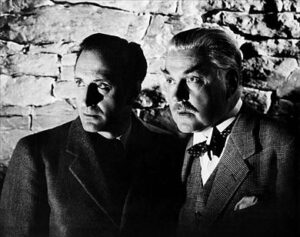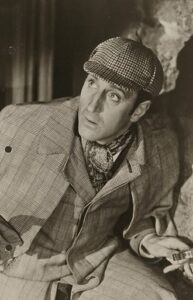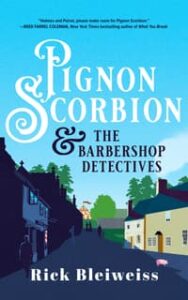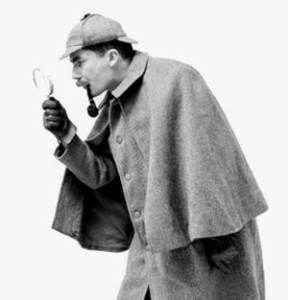I’m a lifelong reader, beginning with the Dick and Jane books in first grade, and being inspired by my mother’s avid reading habits. One of my earliest memories is of her reading a sci-fi thriller with a giant spider on the cover. As a grade schooler I read books about World War II and astronomy, and avidly devoured fiction like Silver Chief, Dog of the North, Call of the Wild, White Fang, King of the Wind (the first book I bought, at a school book sale), and Misty of Chincoteague.
Reading got me into trouble at school. In fifth grade I attended a brand-new elementary school that had modular classrooms with sliding walls. One day I snuck out of the back of my math class to go to the school library to, yes, read. Of course, I was found out.
I used to tell that story to students at the libraries I worked at, finishing with, “and look where I ended up.” It always got a laugh, especially from kids who loved to read. But of course, study math, too. I did, especially after my math teacher suggested to my parents to have my eyes tested. I learned I was myopic (which was why I struggled with math from the back of the class room).
The reading continued. My mother loaned me her set of Edgar Rice Burroughs Barsoom novels one summer, and during my sophomore year in high school I devoured thrillers like The Crash of ’79 and Black Sunday.
When I met my future wife at a job we both had while in high school, one of the many things that drew me to her was that she loved to read.
Reading is not only fundamental, it’s foundational to who I am, and, I strongly suspect, to most if not all of you.
With that in mind, today’s Words of Wisdom looks at reading. Clare Langley-Hawthorne shares the magic Sherlock Holmes worked on her as a young reader. Debbie Burke discusses the legendary Nancy Drew’s impact on her and many others. Finally, Sue Coletta discusses some of the important benefits of reading. You can read the full versions of each of the excerpts, linked from their respective original posting dates.

Luckily, both my boys are great readers (so we get to take lots of books with us!) and I love how we can now discuss books we’ve all read and how I can give them recommendations now that don’t (usually) provoke a whole lot of eye-rolling. I also still read to them every night and have recently started introducing them to Conan Doyle’s Sherlock Holmes stories.
A few pages into the Hound of the Baskervilles, however, and my boys were already terrified (not a good idea just before bed!) so we started instead with A Study in Scarlet and have just recently moved on to The Sign of Four. What is amazing to me is how, despite the old-fashioned language and pace, both my boys are already totally hooked – and I think it’s not really the mystery that draws them in but the character of Holmes himself. It really is amazing to think that a character which in many ways is such a product of his times can be still so intriguing over a hundred years later. As a mum of course, I do have to explain his drug use and the smoking…but, hey, I think of these as…er…’teachable’ moments!
I came to Sherlock Holmes quite late (I was well into my twenties before I read my first Holmes’ story) – compared to my husband who devoured all the stories when he was in the 5th and 6th grade at school in Australia. Though I enjoyed the stories, I don’t think I appreciated the mesmerising qualities of Sherlock Holmes as a character until I started reading the stories aloud to my boys. I’ve been interrogated by them on every aspect of his character – from whether he was based on a real person, to why he knows so much, to how, on earth, he can make such amazing deductions…He’s like a super-hero in many ways but also an enigmatic and flawed hero – which is what, I suspect, makes him so intriguing.
I’m looking forward to continuing to read these stories to my boys and then, I hope, handing the books over to them to read for themselves. To me, one of the great pleasures of being a parent, is passing on a love of reading. I already see each of my twins developing their own reading preferences and am glad that, at least in so far as Sherlock Holmes is concerned, they are gaining an appreciation for mysteries:)
So – tell me, are you are Sherlock Holmes fan?
Clare Langley-Hawthorne—March 31, 2014
Nancy Drew was the original Super Girl—independent, confident, smart. She was competent to handle any challenge, fearless in the face of danger, and resourceful at solving problems decades before MacGyver came along. She drove motorboats, rode horses, and played tennis better than her boyfriend, Ned Nickerson. The girl sleuth never backed down from threats and brought villains to justice.
She is credited as an early influence on many girls who grew up to be accomplished, notable women, including Sandra Day O’Connor, Oprah Winfrey, Ruth Bader Ginsberg, Sonia Sotomayor, Hillary Rodham Clinton, and Laura Bush.

Credit: www.nancydrewsleuth.com
Nancy’s heroic adventures kept my friends and me up long past bedtime, reading with flashlights under the covers. I remember saving for weeks to buy the latest release when it hit the neighborhood toy store that carried her books. If I recall correctly, the hardbacks in the late 1950s cost around a dollar, a serious investment for a kid earning a dime a week allowance.

Credit: www.nancydrewsleuth.com
Additionally, I devoured the local library’s collection of Nancy’s earlier books published in the 1930s and ’40s, with dark blue boards and cool pen-and-ink illustrations.
The dust jackets on older editions had long since disappeared and, after thousands of check-outs, bindings were often held together by heavy tape.
I didn’t really know what a “roadster” was but I sure wanted a blue roadster convertible just like Nancy’s.

Credit: www.nancydrewsleuth.com
In the 1950s, the books featured lighter blue, tweed-pattern boards with dust jackets.

Credit: www.nancydrewsleuth.com
By the 1960s, the dust jackets disappeared and the spine became bright yellow with illustrations incorporated into the front hardcover.
The last one I remember reading was The Secret of the Golden Pavilion (1959) which took place in the then-exotic locale of Hawaii around the time it became the 50thstate.
Throughout the 30 or so books I read, Nancy remained eternally 18-years-old (16 in earlier versions) but never attended school or college. Her successful attorney father, Carson Drew, encouraged her to pursue all kinds of dangerous adventures but no one ever got murdered.
Nancy’s only job was solving mysteries and she didn’t get paid for her efforts.
Realistic? Not very.
Fun and exciting? Yes!
Nancy solved her first mystery in 1930 (The Secret of the Old Clock) and kept unraveling puzzles in 56 classic hardcovers originally published by Grosset & Dunlap. Simon & Schuster added eight additional books in paperback. A complete set of 64 classics in hardcover sells for over $400. The classic series ended in 2003 with 175 books. Spinoffs continue to the present day, totaling more than 600 books, TV series, video games, and films.
Debbie Burke—April 26, 2019
Reading reduces stress.
A 2009 study by Sussex University showed reading may reduce stress by as much as 68 percent.
“It really doesn’t matter what book you read, by losing yourself in a thoroughly engrossing book you can escape from the worries and stresses of the everyday world and spend a while exploring the domain of the author’s imagination,” cognitive neuropsychologist David Lewis told The Telegraph.
Reading helps us relax.
There’s a reason snuggling up with a good book sounds so appealing. Because it is! Reading washes away the stressors of the day as we melt into the pages of a good book.
Reading fiction for fun.
Readers of fiction have increased creativity, empathy, and emotional intelligence. Losing ourselves in a fictional character’s experiences make us more open-minded and allow us to spend time in someone else’s shoes. Thus, readers become better humans than non-readers.
Reading supports self-improvement.
Readers support lifelong learning. One of the best ways to do that is to pick up a book and learn something new. Waving at readers who prefer nonfiction!
In general, read is good for our wellbeing.
Some of us read to escape reality or imagine worlds beyond our own. Some read to learn new skills—cooking, crafting, creativity—or about real people who intrigue or inspire us. Some read thought-provoking books, some dive into futuristic worlds beyond our imagination. Whatever the reason that brings us to the page, reading is one of the best forms of self-care.
Is reading contagious?
Absolutely! Rather than rattle off statistics, I’ll pose a question. How many books have you bought based on word of mouth? When we see another reader all excited about a new book, we want to feel that way, too. So, what do we do? We check out the book.
When children see their parents reading for fun, it plants the seed for them to become lifelong readers, as well. In adults, if one partner pleasure reads several times per week, it lights a spark in their significant other. My husband never read for pleasure till he married me. When he first took the plunge, he devoured more books per week than I did. Over the years as he built and ran his small engine business, he had less time to read. But he dives between the folds whenever possible. Why? Because he sees how much I enjoy reading, and it’s contagious.
Sue Coletta—August 8, 2022
***
- How has reading shaped you?
- What was the first book you read that changed you?
- Did you read Sherlock Holmes and/or Nancy Drew as a child?
- What are some of the benefits of you get from reading?





 Villains are always useful in helping protagonists overcome their shortcomings and face down danger. An example of this was the film “Die Hard” where the protagonist John McClane (Bruce Willis) matches wits with the villainous deuteragonist Hans Gruber (Alan Rickman.)
Villains are always useful in helping protagonists overcome their shortcomings and face down danger. An example of this was the film “Die Hard” where the protagonist John McClane (Bruce Willis) matches wits with the villainous deuteragonist Hans Gruber (Alan Rickman.)

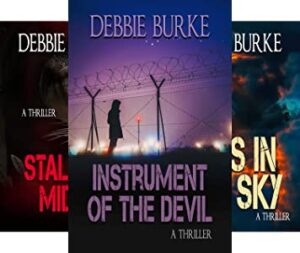
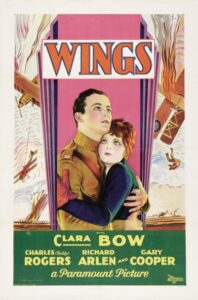 Wings
Wings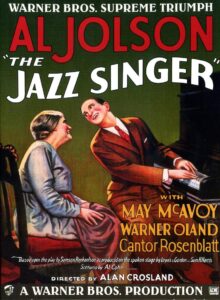
 Franklin W. Dixon,
Franklin W. Dixon, 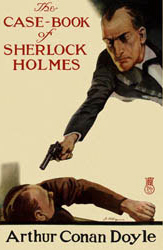 Arthur Conan Doyle, “The Adventure of the Veiled Lodger” and “The Adventure of Shoscombe Old Place,” the last two stories from
Arthur Conan Doyle, “The Adventure of the Veiled Lodger” and “The Adventure of Shoscombe Old Place,” the last two stories from 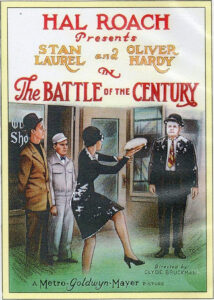 The Battle of the Century (starring the comedy duo Laurel and Hardy; directed by Clyde Bruckman)
The Battle of the Century (starring the comedy duo Laurel and Hardy; directed by Clyde Bruckman)